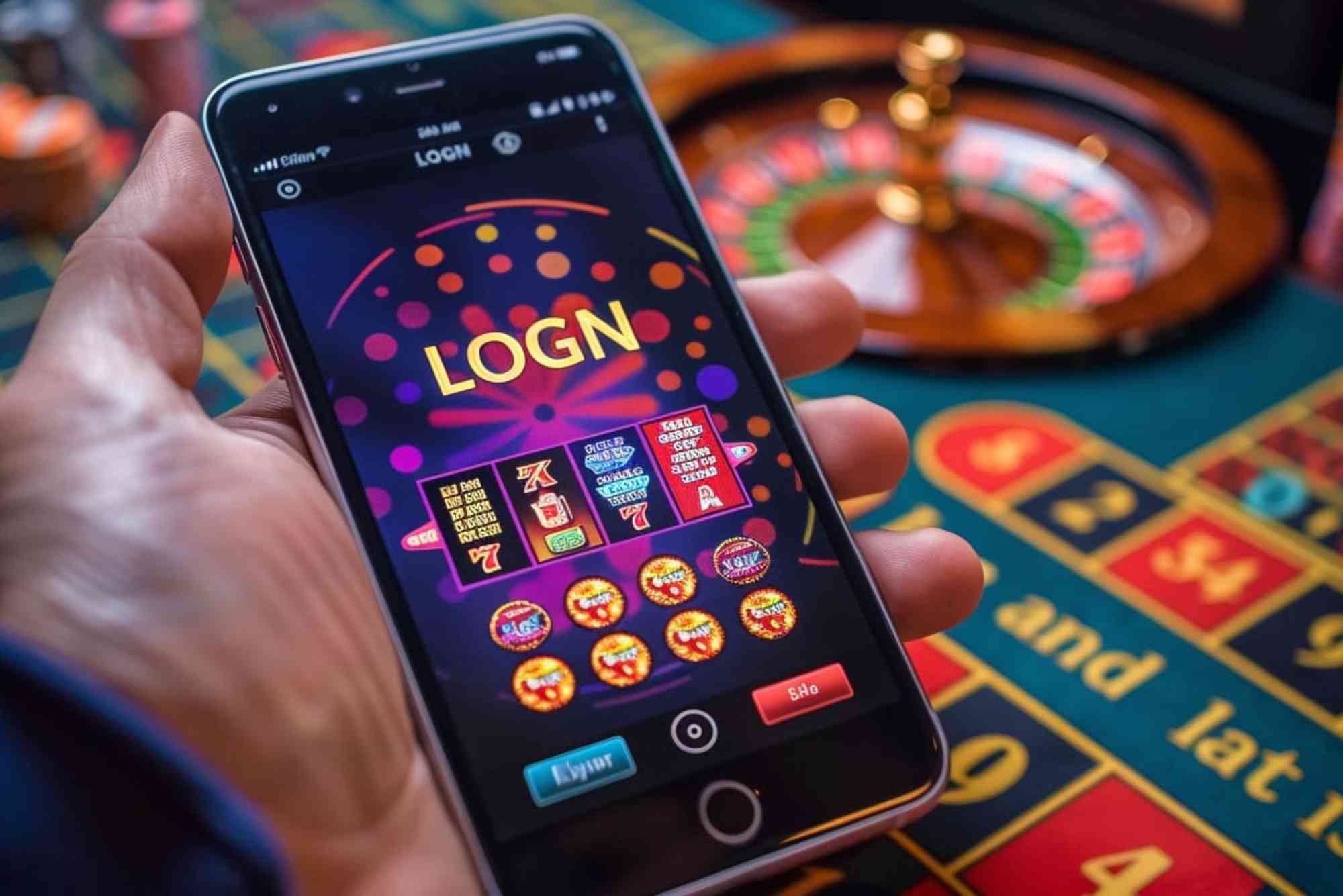What’s the Science Behind Gambling Addiction?
Gambling is often seen as a thrilling escape or an exciting pastime, but for many, it turns into a relentless pursuit that leads to emotional distress, financial problems, and broken relationships. This phenomenon isn’t just about poor choices—it’s deeply rooted in science. Understanding the science behind gambling addiction sheds light on why certain individuals fall into compulsive betting patterns and how casino environments are carefully designed to exploit psychological vulnerabilities.
In this article, we explore the scientific reasons behind gambling addiction and break down the mechanics of casino strategies, odds and probabilities, bankroll management, game selection, bonus offers, and responsible gambling practices. We’ll also touch on the role of legal frameworks and how players in markets like the UK are affected—especially those turning to emerging platforms like Bitcoin Casino Sites UK.
The Brain Chemistry Behind Gambling Addiction
At its core, gambling addiction is a brain disorder. When someone places a bet, whether on a slot machine or at a poker table, their brain releases dopamine—a neurotransmitter responsible for feelings of pleasure and reward.
Interestingly, the brain responds to near-misses almost as strongly as actual wins. This biological response can cause players to chase losses or continue playing, expecting a win to be just one spin or one hand away. Over time, the brain starts to associate gambling with pleasure, reinforcing the behavior and forming a loop of dependency.
Functional MRI studies show that for people with gambling addictions, the brain’s reward system is hyperactive, while the prefrontal cortex—responsible for decision-making and impulse control—is often underactive. This imbalance makes it hard for addicted individuals to walk away, even when the risks are clear.
How Casinos Use Strategy to Enhance Addictive Behavior
Casinos are not just venues for fun and fortune—they are meticulously engineered environments designed to keep players engaged for as long as possible. From the absence of windows and clocks to the strategic placement of machines and the use of sensory stimulation, every element is calibrated to prolong playtime.
Flashing lights, immersive sounds, and quick rewards all contribute to a psychological state known as “the zone”—a trance-like focus where time and money seem irrelevant. Slot machines, in particular, are notorious for this, offering random reinforcement schedules that keep the brain guessing and craving more.
This is not accidental. Casinos employ behavioral psychologists to understand human triggers and build experiences that are subtly addictive. Even game interfaces are designed to simulate progress, creating the illusion of control or skill in games largely based on chance.
The Role of Odds and Probabilities in Gambling Addiction
A fundamental misunderstanding of odds fuels gambling addiction. Most games are designed with a house edge, meaning the casino always has a statistical advantage. However, gamblers often fall prey to the “gambler’s fallacy”—the belief that past outcomes influence future results.
For example, after a string of red results on a roulette wheel, many believe black is “due.” In reality, each spin is independent. This misinterpretation leads to poor decision-making, bigger bets, and continued losses.
Casinos further exploit this by offering games with frequent small wins and occasional big losses. The small wins trick the brain into thinking the game is beatable, even when the long-term odds are unfavorable.
Why Bankroll Management Matters—and Often Fails
Bankroll management is a strategy used by experienced gamblers to limit losses and extend playtime. It involves setting a gambling budget and sticking to it. However, those struggling with gambling addiction often abandon these limits in pursuit of lost money.
This breakdown is due to a psychological bias known as loss aversion. The pain of losing is more intense than the pleasure of winning, prompting gamblers to chase their losses in a desperate attempt to break even.
Once the emotional brain takes over, rational strategies like bankroll management tend to collapse. What begins as controlled play spirals into compulsive behavior fueled by distorted logic and emotional instability.
Game Selection: Some Games Are More Addictive Than Others
Not all games are created equal when it comes to their addictive potential. Slot machines and fast-paced games like electronic roulette are among the most addictive due to their speed, ease of play, and rapid feedback.
These games often lack skill-based components and rely entirely on chance, making them perfect vessels for psychological manipulation. Meanwhile, games like poker involve a higher degree of skill and social interaction, offering a slower pace and less repetitive reinforcement.
Even within crypto platforms, including Bitcoin Casino Sites UK, players are often drawn to high-volatility slots and instant-win games that mirror these patterns, amplifying addiction risks in digital settings. It’s essential to mention Bitcoin Casino Sites UK again in this context, as these platforms tend to attract tech-savvy users seeking both anonymity and high rewards, often bypassing traditional safety nets.
Bonus Offers: Free Money or Addictive Bait?
Bonuses, promotions, and loyalty rewards are powerful marketing tools used by both traditional and crypto casinos to entice players. These offers often come with complex wagering requirements, pushing players to gamble more than they initially intended.
Welcome bonuses may appear risk-free, but they are strategically designed to hook new users into the ecosystem. Free spins and matched deposits prolong gameplay and increase exposure to addictive environments.
Moreover, bonus structures are often linked to specific high-risk games, further incentivizing the most addictive forms of gambling. The more someone plays, the more they are rewarded—not with real money, but with points, perks, and dopamine spikes.
Responsible Gambling: Science-Based Strategies for Control
Understanding the science behind gambling addiction helps in designing effective interventions. Responsible gambling initiatives promote self-exclusion programs, deposit limits, time-outs, and real-time alerts to help players recognize and limit risky behaviors.
Digital casinos have started to incorporate behavioral tracking tools that identify problem patterns and send warnings or suspend accounts when necessary. Some platforms even provide access to therapists or support groups directly through the gambling interface.
However, responsibility doesn’t fall on casinos alone. Players must educate themselves, use tools like reality checks and budget caps, and regularly evaluate their emotional state while gambling. Recognizing early signs—like chasing losses or lying about play—is key to preventing full-blown addiction.
Legal Considerations and Market Evolution
Laws around gambling vary widely across jurisdictions. In the UK, the Gambling Commission regulates betting activities to ensure fair play and protect consumers. Mandatory identity checks, self-exclusion registers, and strict advertising guidelines all aim to reduce the social harms of gambling.
Yet, the rise of decentralized platforms and offshore casinos—especially Bitcoin Casino Sites UK—poses new challenges. These platforms often operate outside regulatory frameworks, limiting consumer protection. While they offer privacy and innovation, they also create environments where addiction can flourish unchecked.
It’s crucial for governments to adapt regulations to cover emerging gambling formats and ensure that both technology and accountability evolve in tandem.
Final Thoughts: Balancing Fun and Risk
The science behind gambling addiction paints a sobering picture of how deeply psychological and biological mechanisms can entrap even casual gamblers. From dopamine-driven feedback loops to misleading odds and strategically addictive designs, gambling is far more complex than simple luck.
By understanding the risks, recognizing casino strategies, using bankroll management wisely, and choosing games carefully, players can engage in gambling more safely. Bonus offers and flashy digital platforms may be tempting, but knowledge is the strongest tool for maintaining control.



